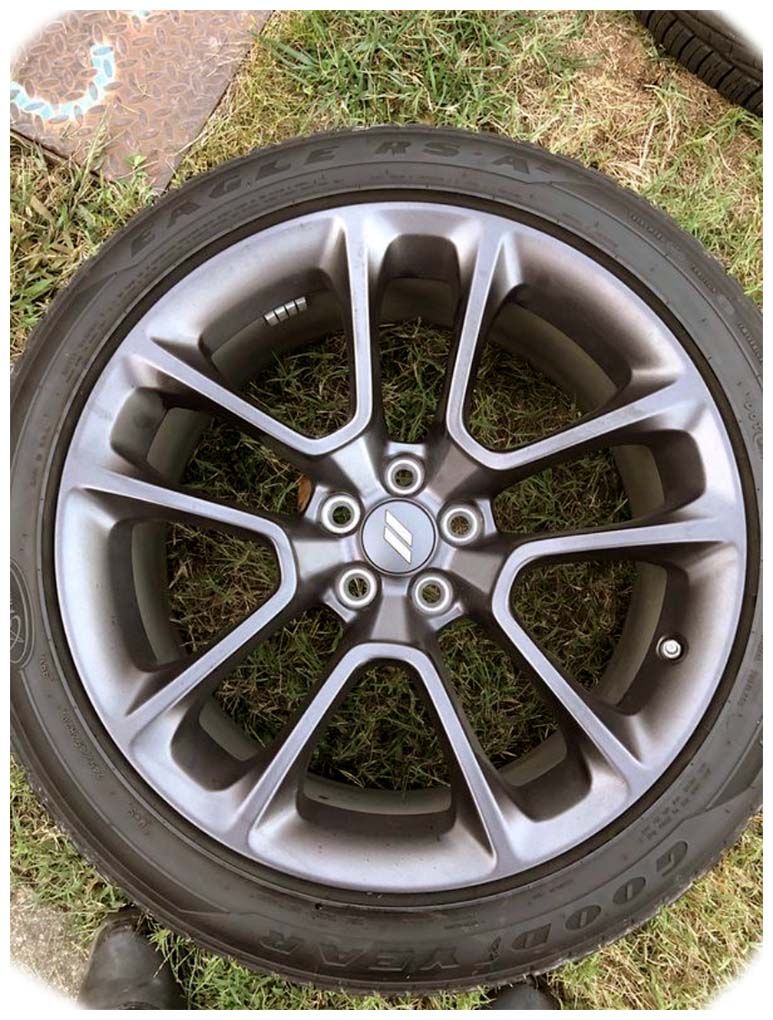A car’s rim is an important part of its overall look and performance. It is the outermost part of a wheel and serves to hold the tire in place. But how much does a rim weigh? The answer depends on multiple factors, such as size, material used, and design. Keep reading to learn more about these considerations when it comes to the weight of a rim.
Factors That Affect the Weight of Rims
A few factors determine how much a rim weighs.
Size: Larger rims are heavier than smaller rims as they require more material for production purposes. 16-inch rims can range from 12–20 pounds while 17-inch rims can weigh up to 24 pounds each.
Material Used: Different materials used for manufacturing car rims can add significantly to their overall weight too; steel wheels are heavier than those made from aluminum alloy or chrome, for example – the latter two being generally lighter in comparison due to their construction techniques and materials used in production processes itself.
Design: Another factor that affects the weight of a car’s rim is its design; aftermarket custom wheel designs with complex details and intricate patterns tend to be heavier than regular OEM rims due to the additional material used and extra fabrication processes.
Average Weight of Different Rim Types
As mentioned earlier, the weight of a car’s rim depends on its size, material used, and design. Here is an overview of the average weight of different types of rims:

Aluminum Alloy Rims: Aluminum alloy rims are lighter than steel rims and are popular for their strength and aesthetic appeal. The average weight for aluminum alloy rims can range from 18 to 30 pounds (8.2 to 13.6 kilograms) per rim, depending on the size and design.
Forged Aluminum Rims: Forged aluminum rims are known for their superior strength and lighter weight compared to cast aluminum rims. On average, forged aluminum rims weigh between 15 to 25 pounds (6.8 to 11.3 kilograms) per rim.
Carbon Fiber Rims: Carbon fiber rims are lightweight and provide excellent strength and stiffness. Due to their high-performance nature and premium material, carbon fiber rims can be significantly lighter, typically ranging from 10 to 20 pounds (4.5 to 9.1 kilograms) per rim.
It’s important to note that these weight ranges are approximate and can vary based on specific rim models and manufacturers.
Are Heavy Rims Bad for Your Car?
Weight is an important factor when it comes to car performance, as heavier components can adversely impact the car’s overall fuel efficiency. So yes, heavy rims can potentially be bad for your car. However, modern cars are designed to handle additional weight without significantly affecting their performance. It is important to check with your vehicle’s manufacturer and read the owner’s manual for specific information related to how much extra weight it can handle in terms of the type and size of rims you plan on purchasing. Another factor to keep in mind when choosing rims is the potential for damage due to improper installation or severe driving conditions, which can sometimes lead to situations where a tire comes off rim. For more information on this, be sure to check out our detailed guide.
Conclusion
Rim weight is an important factor that affects a car’s performance and fuel efficiency. The exact weight depends on multiple factors such as size, the material used, and design – with steel wheels typically being heavier than aluminum alloy or chrome wheels, for example. It is always recommended to consult with a professional mechanic or manufacturer before making any decisions about the type of rim you should buy for your vehicle based on its specifications and capabilities.


Add Comment